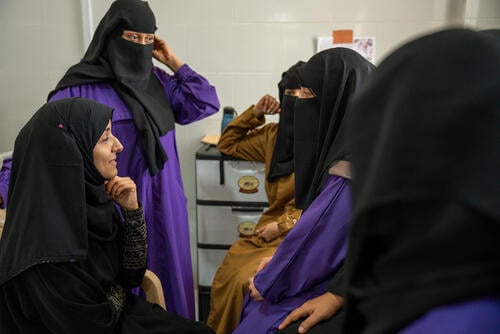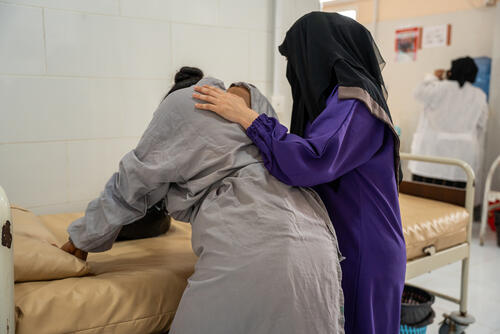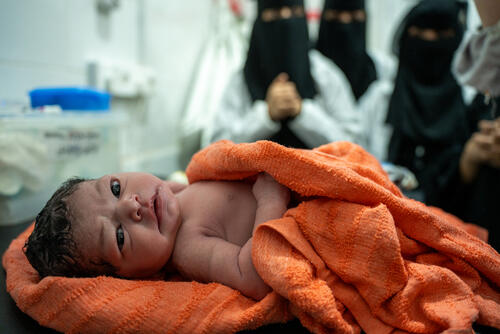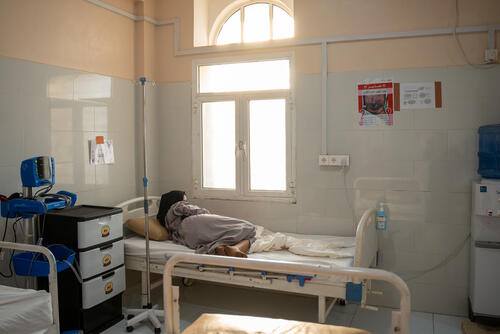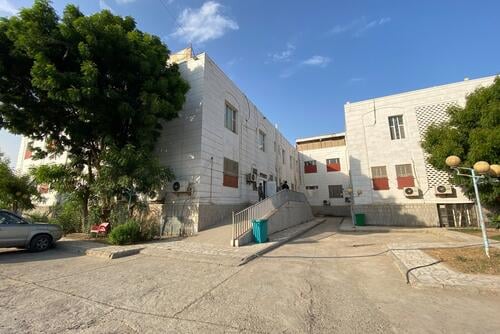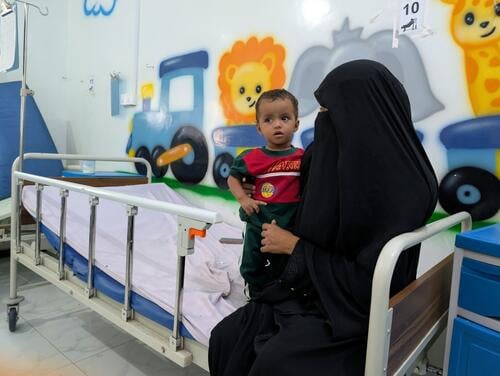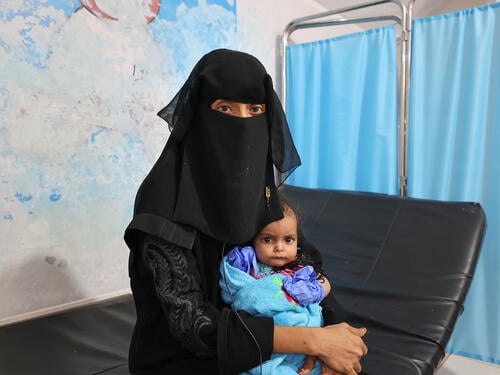“I told my husband I would not survive childbirth again, because I have diabetes,” shares Negah Abdallah Ali, who has just delivered her healthy baby, Ashraf, at the Médecins Sans Frontières (MSF) maternity ward at the Mocha General hospital.
Here on Yemen’s west coast, it’s a sunny Monday afternoon. Outside, the air is a heavy 35 degrees Celsius, but inside the post-delivery room, Negah and the other mothers can feel a soothing breeze from the air-conditioning. Peering out of the window, patients can see the swelling rhythm of the Red Sea just beyond the hospital.
On top of having diabetes, Negah, who is 35 years old, has hypertension. Both conditions increase the risks associated with pregnancy and delivery. Negah is one of the thousands of women who come to MSF’s maternity during their pregnancy.
As in most countries affected by conflict, Yemen has a collapsed healthcare system. This leaves women and children particularly vulnerable to health complications. In Mocha, one of the ways that this manifests is the unavailability of services for pregnant women.
“We are the only 24/7 maternity and paediatric wards in the entire west coast area, which covers a little more than half a million people,” says Ann Van Haver, MSF midwife activity manager.
In July 2024, MSF integrated our maternity services into Mocha General hospital. This allowed us to expand the services we could offer, including by opening the new comprehensive obstetric and neonatal care ward. Today, the maternity has 28 beds for delivery and post-delivery, including beds for neonatal and intensive care. Before this move, MSF was providing maternal care out of a field hospital that was initially set up in Mocha in 2022.
Yemen’s west coast is a rural area with frontlines to the north and east. Women with high-risk or complicated pregnancies sometimes make a three-hour drive to reach the hospital in Mocha. An expected 15 per cent of the deliveries will have obstetrical complications, which, if not treated in a timely manner, could be fatal.
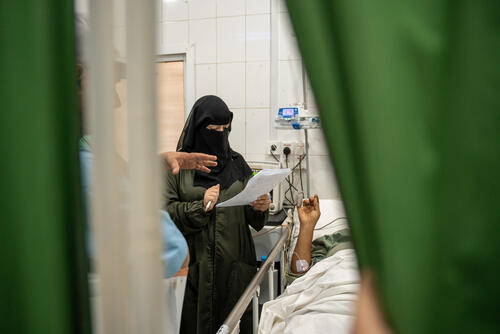
The risks and complications faced by women in the area are easily preventable, but without consistent and accessible antenatal and postnatal care pregnancy becomes more dangerous. The healthcare centres in the region are ill-equipped, untrained, and scarce to begin with. So, women are left with no choice but to travel long distances on bad roads.
“There are so many challenges for mothers in Yemen, and most of them are linked to the war making access to the few left health centres too complicated,” says Altaf Al Wahidi, a 28-year-old midwife at the MSF maternity. “That’s why the location of this maternity is so crucial, we cover a large area of the west coast.”
That’s why the location of this maternity is so crucial, we cover a large area of the west coast.Altaf Al Wahidi, midwife
The complications that women experience can be dealt with by the hospital and its staff, if patients arrive on time. However, Ann Van Haver insists that a closer-to-home first line of care should be available. Considering the west coast population, around 1,300 women are expected to give birth each month.
“Around 250 are delivering with us now,” says Van Haver. “So, there are a thousand other deliveries every month somewhere else. And today, this is not in health facilities. And because of that, we see a lot more complications requiring invasive treatments.”
There are many factors working against a woman’s ability to reach a hospital on the west coast; continued displacement from the conflict, many checkpoints along the roads, dire economic conditions, and the need to get formal consent from a male family member for any medical act, including a caesarean section. This leaves expectant mothers with little choice but to deliver in unsafe settings, risking their and their baby’s life.
Fatema*, is 16 years old. She went to the hospital as soon as she thought her labour started, but it wasn’t progressing. She returned home a few hours later, only to then suddenly deliver at home with the help of her mother.
“The delivery went well, and the baby is fine, but I experienced some bleeding afterward,” says Fatema. “In the morning, I returned to the hospital, where I received proper medical care to stop the bleeding. I am happy and relieved that the pain is gone and that I will be discharged soon to meet my baby.”
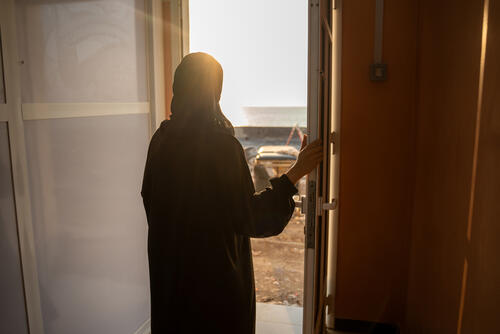
Back in the post-delivery room, Negah is visited by the health educator, Bashira Seqek, who gives her information about paracetamol toxicity, the benefits of breastfeeding, and family planning. Meanwhile, in the corridor, her husband Ali Abdallah Ali holds their one-day-old son with pride in his eyes.
“Since the maternity opened here in Mocha, everything is available, and I am grateful for that,” says Ali. “I feel 100 per cent confident about the services provided. In my village, we all know we have to come here for matters related to maternal care.”
Behind the door, where non-medical male staff aren’t allowed, the maternity ward is a woman’s world of dignity and solidarity that pulses to the rhythm of the midwives.
Since moving our services to Mocha General hospital, more than 1,600 women have safely delivered in our ward.
*Name changed to protect identity.



